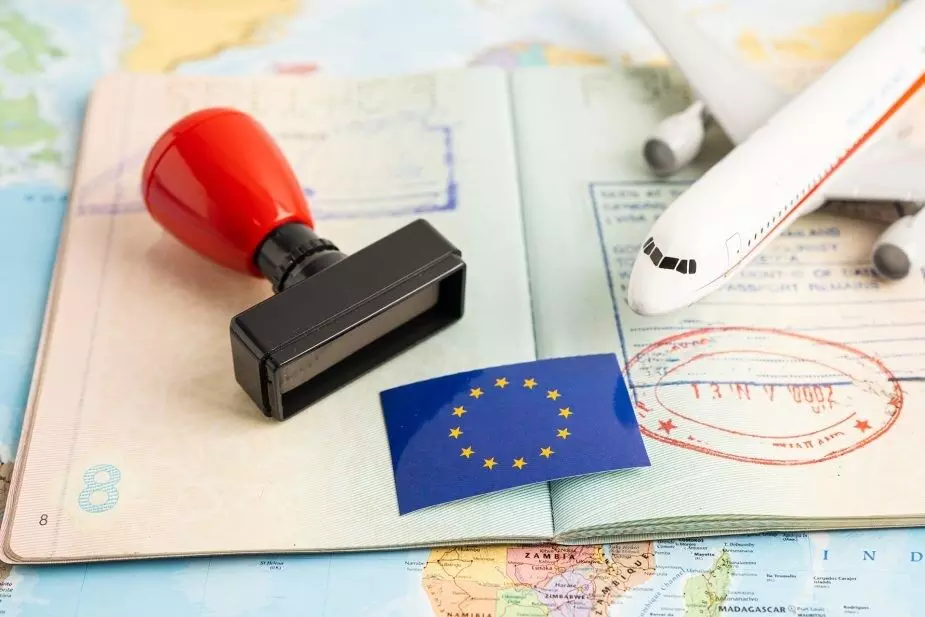How to Apply for Permanent Residence in Europe: A Complete Guide from Immigrantinlaw Specialists
image for illustrative purpose

To emigrate from other countries to the EU, you need to have a legitimate reason for long-term residence in the chosen state. Subsequently, the reason must be maintained (or a new one found) until you receive a permanent residence card. In addition to meeting the period of residence, applicants for permanent residency are usually subject to the following requirements:
● A2-B1 level knowledge of the national language;
● documented self-sufficiency;
● no criminal record;
● sustainable integration into society;
● Intention to reside permanently in the country and availability of a place for it.
The process of applying for permanent residence in Europe
Step by step moving to Europe for permanent residence in the usual order looks like this:
1. Opening a national visa. Even if you can travel to your chosen country visa-free, you usually still need to obtain a long-term entry permit for a residence permit. You submit your request to the consulate/embassy in your home country along with the required package of documents, according to the basis.
2. Obtaining a residence permit. When you arrive in Europe with a long-term visa, you should register your address, if necessary - collect additional documents (e.g., local tax and social security numbers), and then make an appointment with the migration authority. You will need to resubmit your dossier and wait for approval, after which you pick up the resident card.
3. Residence with a residence permit and its extension. On average, a temporary residence permit is valid for up to 1-2 years. You need to keep the reason for staying in the country and regularly apply for re-registration of residence to the migration authority with the relevant documents.
4. Submitting a request for permanent residence. After meeting the residency standards, you can apply for EU permanent residence if you meet the other requirements. Permanent residence is also issued at the migration authorities after personal application.
Required documents
If you want to apply for a residence permit in the EU and subsequently for a permanent residence permit, you may need:
● a valid passport for traveling abroad;
● certificate of absence of criminal record in the home country;
● vital records (birth, marriage/divorce);
● income certificate or similar proof of wealth;
● rental agreement or proof of purchase of housing in the EU;
● results of successful completion of the language/integration test;
● receipts for payment of the administrative fee at each stage;
● declaration of absence of tax debts.
It is also necessary to prove with documents that you have a legal reason to move to Europe. This can be done, for example, by means of an employment contract, an investment certificate, a certificate of university enrollment or civil status certificates (in case of family reunification).
Cost of registration and relocation
To understand how much it will cost you to move to the EU, you need to sum up the rates of state duties, the price of renting or buying real estate, the cost of services of logistics companies, notary and translator. Add to this the costs of legal support, buying transportation tickets, paying for utilities.
The comparative table below provides information about the cost of immigration to popular European countries (amounts are given in EUR).
Category of expenses | Romania | Bulgaria | Slovenia |
National visa | 120 | 100–200 | Not required |
Residence permit/extension of residence permit | 120 | 50–125 | 5–13 a request + 102 residence permit + 15,5 resident card |
Permanent residence | 14 | 55 | 90 |
Rent one bedroom apartment | 300–400 | 300–400 | 600–700 |
Price per m² of the real estate | 1500–2000 | 1400–2100 | 3500–4500 |
Payment of utilities (per month) | 100–200 | 70–150 | 150–350 |
Sending personal belongings by post | 10–15 (per kg) | 10–15 (per kg) | 10–15 (per kg) |
Naturalization in the European Union is a very long and costly way to obtain citizenship. Over the years of living with a residence permit and a permanent residence permit, you will spend substantial sums on basic expenses. It is much cheaper to obtain a second citizenship through a simplified procedure with step-by-step assistance from Immigrantinlaw international law specialists.

